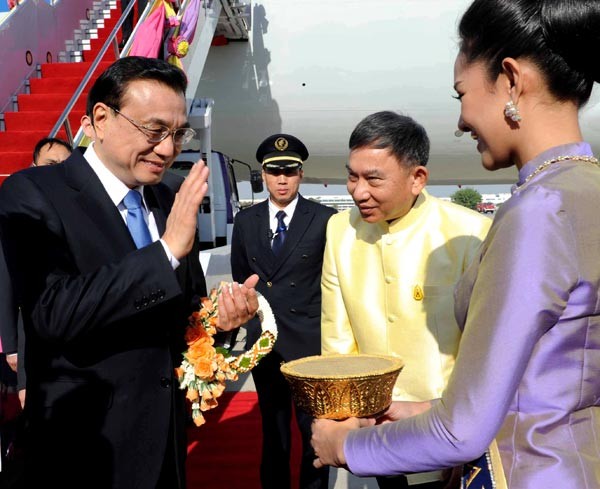After touching down in Bangkok on Dec. 19, Friday, for the fifth summit of the six-nation Greater Mekong Subregion (GMS) Economic Cooperation group, Premier Li Keqiang's first call of business was with the leader of the host nation, Thai Prime Minister Prayut Chan-o-cha.
The two politicians were required to revisit the outcome of talks that occurred in 2013, and both emerged with significant results.
Thailand is the final stage of a three-leg tour for Li, as he represents his nation's plan to establish the Silk Road Economic Belt, which is based on the famous historical trade route. After a prominent year in Chinese business, Li's guests have all been eager to develop relations with the East Asian economic powerhouse.
However, the sentiment was also reciprocated, as Li expressed China's desire to further develop ties, including bilateral trade, with Thailand. The $10.6-billion railway line project announced after Friday's meeting will be a major component of future relationship-building.
With Southeast Asia's second-largest city as it capital, Thailand urgently needs to improve transport options that connect Bangkok with other important locations. The project, first tabled at last year's meeting, was approved by the Legislative Assembly of Thailand in early December.
The China-Thailand railway line will be under the management of the China Railway Corp., with China providing construction expertise that is based on its own completed rail projects. Once finished, trains traveling at up to 180 kilometers per hour will use dual-track lines--734 kilometers in length--to connect the capital with the northern Nong Khai province.
Also, a 133-kilometer branch line will provide new access to Rayong in the east. Other key goals of the railway project are to enhance the transportation of goods between the two countries, and to give Chinese tourists easier access to Thailand.
Thai Transport Minister Prajin Juntong told reporters that research for the new railway line will begin in January or February 2015.



























